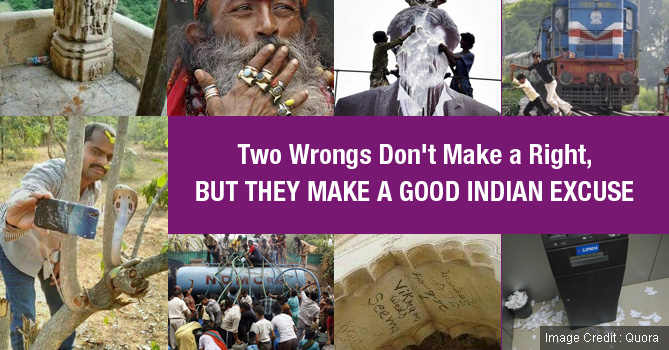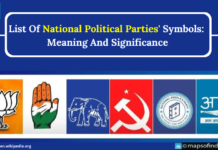Indian people have always been politically aware and active, and have never shied away from collectively responding to events, issues or personalities. However, there is an increasing trend of activism and attitude that should be a matter of concern to civil society.
A review of public response to situations, events and actions in the near past, shows that a large section of people seem to have misplaced priorities. We pride ourselves on our rich cultural heritage, a mature democracy, an inclusive society and tolerance to all religions and communities, and yet, we react to lesser issues or non-events when there are more serious issues that demand public participation and activism. Let’s look at some of those misplaced priorities.
Public agitation for smaller issues
The latest example was witnessed recently in Tamil Nadu. How do you explain the mass movement that saw people of all ages and economic classes coming out onto the streets so strongly in support of an animal sport festival, which very few people actually participate in or are involved with. This was not something that directly impacted people’s lives or income but yet people took to the streets as if their life depended on it.
There are many more serious issues of caste discrimination, unemployment, corruption in all walks of life, gender inequality, child labour, etc, and yet, none of these seem to evoke mass public reaction or condemnation.
The trend is not restricted to Tamil Nadu and can be seen in other states as well. For example, agitations for being declared a backward community have taken the form of mass movement and a violent one at that. Incidents of dowry deaths, brutal rape, acid being thrown on women, paedophilia cases, etc, don’t invoke people to take to the streets, and yet, we see people getting violent over some fictional film depicting a character from history, in a manner that a small section does not agree with. Sad irony.
Indifference to life or injury
Every day we come across news of indifference to the point of callousness that people display, when they come across some one seriously injured or suffering and simply continue to proceed ahead without stopping, assisting or even reacting. With the advent of mobile phone cameras, taking selfies while a person is dying on the road seems to have emerged as the new normal and that’s a serious statement of misplaced priorities.
Gullible to rumours
Gullible people are increasingly falling for rumours spread over social media. Communal tensions get triggered with false messages circulated by vested interests. These seem to surface with fair regularity just before state and general elections. The fact that people so easily accept such rumours as fact and react so strongly, reflects poorly on people’s maturity and judgement.
Superstition
Remember the frenzy generated with the news of Lord Ganesh drinking milk in the mid-’90s? Or the frequent cases of some self-styled Baba tricking a naïve housewife to part with her jewellery. It is amazing that these also involve educated men and women.
And then, you have extreme cases being reported of some tantrik or the other encouraging child or human sacrifice, to satisfy his own agenda. No, these don’t get people out on to the streets but if an ancient, life-threatening decrepit building is pulled down, people launch agitations immediately.
Unrestricted adulation
People take adulation for politicians, actors, sportsmen and the like to extreme levels, where these public figures are treated like the next closest thing to god. Adulation and fan following is normal but when it leads to physical threat, violence and even self-harm, it is time to question a person’s ability to think and act rationally.
People have been known to write messages in blood expressing love for their so-called ‘heroes’, but they don’t hold similar feelings for real-life heroes like Nobel prize winner Kailash Satyarthi who has spent his entire life dedicated to fighting child exploitation.
You will find pictures of personalities and other memorabilia all over the walls and rooms of fans, but not a single picture of a Satyarthi or for that matter a Deepa Malik, a wheelchair-bound Gold Medallist at Rio Olympics.
The ‘perception’ of heroism seems to be more attractive than real. Real heroes exist all around us in all walks of life, but we only see and recognise those that don’t come anywhere near to being the real heroes.
Flawed approach to education
We like to blame the system but the fact is that the initiative for knowledge acquisition and knowledge application lies with us. We pursue education not to learn but to score marks in an examination. We read to express but not to apply what we read. We study history as a subject and not as a lesson to learn from, for the times ahead.
Morality, ethics and citizenship should be the first goal of our education, followed by information. Instead, we focus on learning by rote and ignore the values of education. We believe in running after post-school tuitions but spend little time and money in focusing on imbibing what we learn in school.
Our perception and approach to education need an urgent course correction.
Resistance to change
It is often said that change is the only constant in life. But as a nation, we seem to resist change. India is the most successful example of change and evolution, built on the bedrock of tolerance and inclusiveness that has survived for over 5000 years. And yet, we fight those very core values that have given us the most unique identity as a vibrant cross-cultural and tolerant nation. Vested interests goad people into misplaced priorities in what can only be described as exaggerated existential threats.
So is there hope for India?
Absolutely! Generations have demonstrated strong resilience in holding out against every kind of military, religious, cultural and economic invasion that the nation has faced over centuries; and so there is no reason to feel an existential threat to our identity or way of life, at this point.
But today, the real threat emanates from within. There is a strong case to re-look at what we accept as our priorities. The hope lies not with the older generation but the emerging one, since it is their life that will be impacted most as time moves on. As long as we allow introspection with optimism, to override skepticism and pessimism, there is real hope that India shall overcome.




